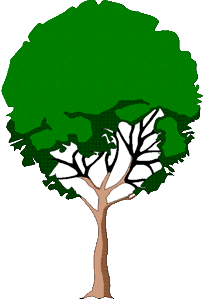Winter Wonderland
Answer: When it's the Rosh Hashana of the trees.
 Tu B'Shevat,
the 15th of Shevat, is the New Year for trees. On this day, it
is customary to eat from the seven species for which the land
of Israel is praised: "...a land of wheat and barley
and (grape) vines and fig trees and pomegranates,
a land of olive trees and (date) honey." (Deuteronomy
8)
Tu B'Shevat,
the 15th of Shevat, is the New Year for trees. On this day, it
is customary to eat from the seven species for which the land
of Israel is praised: "...a land of wheat and barley
and (grape) vines and fig trees and pomegranates,
a land of olive trees and (date) honey." (Deuteronomy
8)
Tu B'Shevat is the day when new sap starts to rise in the tree, when new life is starting to emerge. Even though we are still in the middle of winter and all looks bleak, cold and lifeless, Tu B'Shevat comes - a day of new life with the promise of rejuvenation.
That's why Tu B'Shevat can be compared to the coming of the Mashiach and the final redemption of mankind. Everything looks bleak and there seems to be no sign of life; we are threatened by increasing assimilation and the loss of Jewish identity; Jewish life seems frozen and moribund. But even at that very moment, the sap is rising. On the surface, you can see no change whatsoever, but precisely at that moment, life secretly and inexorably starts to burgeon anew.






